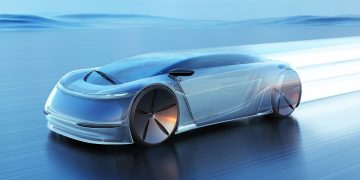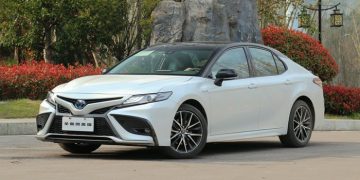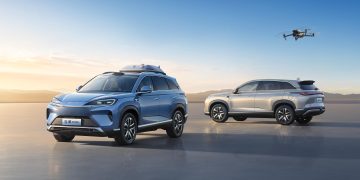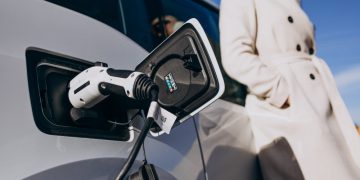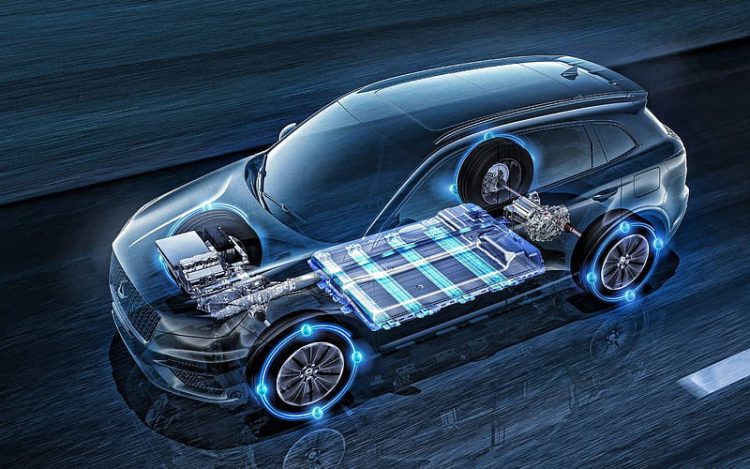Introduction: The Evolution of Consumer Preferences in the Automotive Industry
The global automotive industry is undergoing a profound transformation. As environmental concerns, technological advancements, and shifting economic landscapes shape the future of mobility, one of the most notable trends is the rising consumer demand for electric vehicles (EVs). What was once considered a niche market for eco-conscious early adopters has now become a major force in the automotive sector. Electric vehicles are no longer viewed solely as environmentally friendly alternatives but are increasingly seen as a practical, cost-effective solution to the modern transportation challenges facing consumers worldwide.
This shift in consumer preferences is influenced by multiple factors, including growing awareness of climate change, the increasing cost-effectiveness of EVs, and the rapid advancements in vehicle technology. Consumers are now making decisions based not only on their personal transportation needs but also on broader social and environmental considerations. From fuel savings to lower emissions, the advantages of EVs align with the values of today’s increasingly conscious consumers.
In this article, we will examine the various factors that are driving consumer preferences towards electric vehicles. By exploring the intersections of environmental concerns, cost considerations, and technological developments, we will gain insight into how these factors are shaping the future of the EV market.
The Rise of Environmental Concerns and the Shift Towards Sustainability
1. Increasing Awareness of Climate Change
One of the primary factors behind the growing preference for electric vehicles is the increasing awareness of climate change. As global temperatures continue to rise and extreme weather events become more frequent, consumers are more attuned to the environmental impact of their everyday actions. The transportation sector, which accounts for a significant portion of global carbon emissions, is a key focus in the fight against climate change.
Electric vehicles, with their zero tailpipe emissions, present a viable solution to reducing the carbon footprint associated with personal transportation. For many consumers, the decision to switch to an EV is driven by a desire to contribute to environmental sustainability. EVs offer a tangible way to reduce the impact of transportation on the planet, aligning with the growing desire for eco-conscious living.
2. Government Policies and Incentives
As governments around the world implement stricter regulations on emissions and offer incentives for sustainable practices, consumer interest in electric vehicles has been further fueled. Tax credits, rebates, and other financial incentives have made EVs more affordable and accessible, providing additional motivation for consumers to make the switch.
These government policies have been instrumental in lowering the barriers to EV adoption. By offering financial support, governments encourage consumers to choose electric vehicles over traditional gasoline-powered options. In many countries, the shift toward electric vehicles is not just a matter of preference but also a matter of policy alignment with broader environmental goals.
3. Cleaner Urban Air Quality
Urban air quality has become a significant concern for many consumers, particularly in densely populated areas where vehicle emissions contribute to air pollution. Electric vehicles, by virtue of their zero emissions, are seen as a key solution to improving urban air quality. Cities that are heavily affected by pollution are increasingly implementing policies to encourage the use of EVs, further driving consumer demand.
For many urban dwellers, the move to electric vehicles is not just about reducing their carbon footprint but also about improving their quality of life. The promise of cleaner air and healthier communities resonates strongly with consumers who are looking for ways to make a positive impact on their environment and their health.
The Economic Benefits: Cost Savings and Affordability
1. Lower Operating Costs
While the initial purchase price of electric vehicles has historically been higher than that of traditional gasoline-powered cars, the long-term savings associated with owning an EV make it an attractive option for many consumers. Electric vehicles have significantly lower operating costs, including fuel costs and maintenance expenses.
Electricity is generally much cheaper than gasoline, and the cost to recharge an EV is substantially lower than refueling a combustion engine vehicle. Additionally, electric vehicles have fewer moving parts, which results in less wear and tear and fewer maintenance needs. For consumers who are concerned about the cost of owning a car, EVs provide an economically viable alternative.
2. Government Subsidies and Tax Incentives
In addition to lower operating costs, government subsidies and tax incentives have played a pivotal role in making electric vehicles more affordable for consumers. Many countries offer rebates or tax credits for purchasing EVs, which significantly reduces the upfront cost. These financial incentives have made EVs more accessible to a wider range of consumers, including those who may have previously been deterred by the higher initial price tag.
As the cost of EVs continues to decrease and incentives increase, more consumers are likely to be drawn to the economic advantages of electric vehicles, further accelerating the market shift.
3. Total Cost of Ownership (TCO) Comparison
When consumers make purchasing decisions, they often consider the total cost of ownership (TCO), which includes not only the purchase price but also the ongoing costs associated with operating the vehicle. In the case of electric vehicles, the TCO is becoming increasingly competitive with that of traditional gasoline-powered cars.
With lower fuel costs, reduced maintenance, and the potential for long-term savings, electric vehicles are positioned to offer superior TCO over their lifespan. As consumers become more aware of these benefits, the demand for EVs is expected to grow, especially among cost-conscious buyers.
Technological Advancements and Consumer Expectations
1. Battery Technology and Range Anxiety
One of the most significant hurdles for electric vehicles has been range anxiety—the fear that an EV will not have enough battery power to complete a trip. However, advancements in battery technology have significantly improved the range of modern electric vehicles. Consumers now have access to EVs with ranges that can easily accommodate the needs of most daily drivers, with some models offering over 300 miles on a single charge.
As battery technology continues to evolve, with new innovations in energy density and charging speed, the range limitations that once deterred many consumers are becoming a thing of the past. This, in turn, is increasing consumer confidence and encouraging more people to consider electric vehicles.
2. Improved Charging Infrastructure
The availability of charging stations is another critical factor influencing consumer preferences. A robust and accessible charging infrastructure is essential for widespread EV adoption, and manufacturers are working closely with governments and private companies to build out the necessary networks.
With more public charging stations being installed in cities, highways, and other key locations, consumers are becoming more comfortable with the idea of owning an electric vehicle. Charging times have also decreased, thanks to advancements in fast-charging technology, making it more convenient for consumers to recharge their EVs during long trips or at public charging stations.
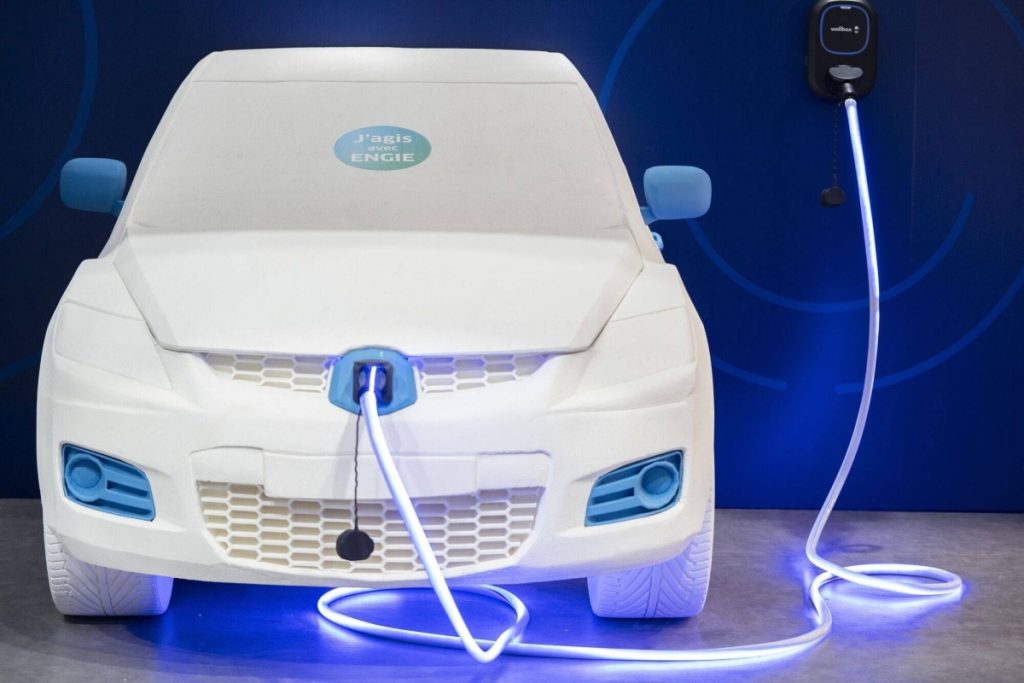
3. Smart Features and Connectivity
Modern electric vehicles are increasingly equipped with advanced technological features, including autonomous driving capabilities, intelligent infotainment systems, and connectivity with smartphones and other devices. Consumers today expect their vehicles to be equipped with the latest tech, and EVs are leading the way in terms of innovation.
The integration of smart technology into EVs has made them even more appealing to tech-savvy consumers. From intuitive navigation systems to over-the-air software updates, the EV market is evolving to meet the demands of consumers who prioritize advanced features in their vehicles.
Shifting Consumer Values and the Role of Social Responsibility
1. Changing Attitudes Toward Car Ownership
As younger generations, particularly millennials and Gen Z, enter the car-buying market, there is a notable shift in attitudes toward car ownership. Many consumers are now less interested in owning cars outright and are more open to alternative mobility options, such as car-sharing and subscription services. This shift in consumer behavior has prompted automakers to adapt their business models, offering new ways to access electric vehicles.
For consumers who are still interested in ownership, the appeal of electric vehicles is heightened by their environmental benefits and cost-saving potential. Additionally, as societal values continue to shift toward sustainability, purchasing an electric vehicle is increasingly seen as a responsible and socially conscious choice.
2. The Role of Brand Image and Corporate Responsibility
Consumers are also becoming more discerning about the brands they support. The growing demand for EVs reflects a broader trend toward corporate responsibility and sustainability. Consumers want to align their purchasing decisions with their values, and many are now choosing brands that are committed to reducing their environmental impact.
Automakers are responding by embracing sustainability initiatives, such as reducing carbon emissions in manufacturing, using recycled materials, and supporting renewable energy sources. These efforts resonate with consumers who prioritize corporate responsibility, making EVs an attractive option for socially-conscious buyers.
Conclusion: The Future of the Electric Vehicle Market
The future of the electric vehicle market is undeniably bright. Driven by shifting consumer preferences, environmental concerns, technological advancements, and economic factors, EVs are poised to become the dominant form of personal transportation in the coming years. As consumer demand continues to grow, manufacturers will need to adapt their strategies to meet the evolving needs of the market.
For consumers, electric vehicles offer a range of benefits, from environmental sustainability and cost savings to cutting-edge technology and improved driving experiences. As the market matures and infrastructure improves, more consumers will likely embrace electric vehicles, propelling the automotive industry into a new era of innovation and sustainability.



